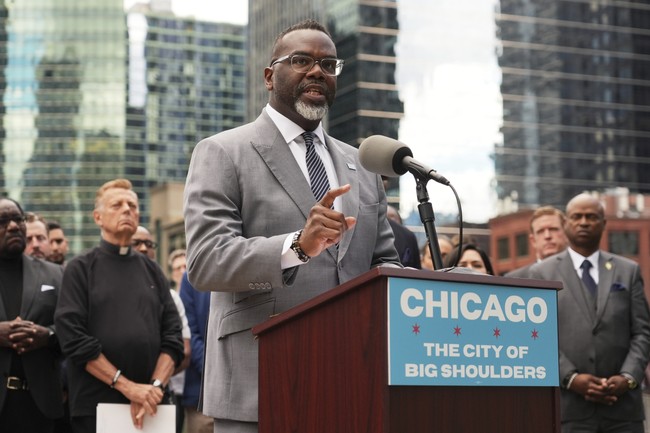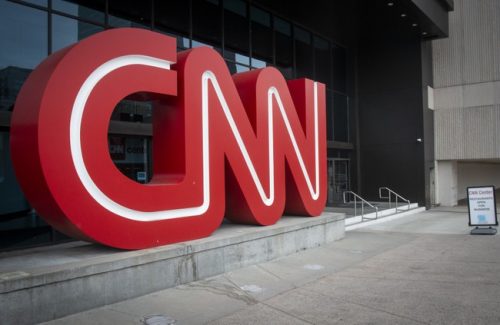Chicago’s Newest Budget Declares War on Businesses to Fix Mayor Johnson’s $1.2B Deficit
Chicago faces a $1.2 billion shortfall for 2026 and the mayor’s new budget leans hard on new taxes instead of spending cuts. Rather than trimming programs, the plan targets businesses with fresh levies that hit payrolls, cloud services, and social media platforms. The stated aim is to close the gap, but the strategy risks pushing employers and tech investment away.
The proposals include a revived head tax, a sharpened 9% “cloud tax” on electronically delivered software, and an expansion of an amusement-style fee to social media. These moves would make Chicago one of the most aggressive big-city tax environments for tech and employers. Critics say it’s a predictable playbook: raise revenue by making the city less business-friendly.
This time, Johnson is eying a corporate head tax, a “social media tax,” and a “cloud tax” on electronically-delivered software.
Reviving Chicago’s head tax (a tax per job that the city eliminated in 2014) as a “community safety surcharge” and imposing it on all companies employing over 100 people in Chicago.
NEW: Chicago Mayor Brandon Johnson will call for several tax hikes in his budget address today, according to a leaked copy of his press release. They include ⬇️
🚩 Reviving Chicago’s head tax (a tax per job that the city eliminated in 2014) as a “community safety surcharge”… pic.twitter.com/iuinznKb0X
— Austin Berg (@Austin__Berg) October 16, 2025
Hiking the city’s 9% “cloud tax” on electronically delivered or cloud-hosted software. We are the only big city in the country with this type of tax, which has been cited by tech businesses as a reason not to invest in Chicago.
Expanding the city’s amusement tax to apply to social media companies, charging $0.50 per “active user” over 100,000 users in Chicago.
The revived head tax would tack on $21 per employee per year for firms above the 100-employee threshold. That figure sounds small until you scale it up: a business with exactly 100 employees would face an extra $25,200 annually under this plan. The consequence: more cost pressure on hourly wages and benefits or on hiring decisions.
Large employers would face sizable new bills using Johnson’s math. Amazon — 33,000 employees = $693,000; Advocate Health — 30,700 employees = $644,700; Northwestern Memorial Healthcare — 29,400 employees = $617,400; United Airlines — 14,000 employees = $294,000. Those are yearly figures that compound already tough staffing and cost challenges.
Chicago once had a head tax that peaked at $4 per employee per year before it was repealed in 2014; this version is more than five times that peak. The “social media tax” would charge $0.50 per “active user” over 100,000 in Chicago, which would almost certainly include X, Facebook, TikTok, and YouTube. With roughly 2.7 million residents, even a conservative user estimate produces six-figure annual bills for the platforms.
Or would it apply to social media users with large followings?
The likely fallout is predictable: businesses pass costs to consumers, curb hiring, or shrink payrolls to stay below thresholds. Firms hovering near the 100-employee cutoff could trim staff to avoid the surcharge, and tech companies may avoid further investment in a city that taxes cloud services uniquely among large U.S. cities. In extreme cases social platforms could restrict service access rather than absorb the fees.
Chicago’s spending choices are the real driver of the crisis, but political leaders are leaning on revenue grabs instead of reforms. The uber-Leftist Chicago Teachers’ Union insists taxing Chicago’s wealthy is the way to go, even as pension shortfalls and budget mismanagement persist. Efforts that prioritize growth and cost control would offer alternatives that don’t punish job creators.
The problem in Chicago is, as always, spending. Illinois Policy Institute (IPI) outlines ways Chicago can right its fiscal ship without raising taxes:
Chicago needs to prioritize financial responsibility and restraint. A common-sense approach to budgeting would stabilize Chicago’s finances, restore confidence among job creators and encourage economic growth that expands the city’s tax base. Ensuring Chicago has a pro-growth tax and regulatory climate will be crucial for achieving long-term prosperity.
To encourage economic and population growth, the city of Chicago should:
- Establish a robust pro-growth economic environment to expand the tax base – not the burden – and foster enduring fiscal health.
- Increase expenditures responsibly by capping budget growth in any year to the 10-year average growth in the consumer price index for all urban consumers.
- Right-size programs to create at least $550 million in 2026 budget savings and offset recent spending increases.
- Prioritize eliminating long-standing city job vacancies and filling critical roles, to reduce overtime costs and stop budgeting tricks enabled by backlogs of unfilled positions.
- Support constitutional pension reform for long-term budget stability and advance interim measures, such as pension buybacks.
- Secure immediate revenue without raising taxes, such as through Chicago Public Schools accountability.
Of course, many expect Democratic leaders to push the new taxes despite warnings from business groups and fiscal reform advocates. Last October, Johnson said being fiscally responsible was akin to supporting slavery.
Being fiscally responsible is one of the duties of government, of course. One they fail at, repeatedly.
Editor’s Note: The Schumer Shutdown is here. Rather than put the American people first, Chuck Schumer and the radical Democrats forced a government shutdown for healthcare for illegals. They own this.






